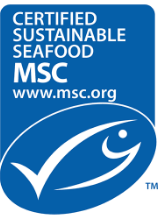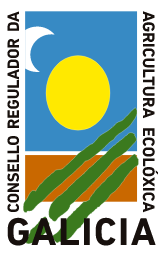The Blue Economy is the title of an essay published by Gunter Pauli, a Belgian economist who revises the current productive business models. The so-called blue economy defended by Pauli is based on the combination of sustainability and innovation, always prioritizing local development. However, this concept is also connected to the economic activity related to the oceans. In any case, the canning sector in general, and Palacio de Oriente in particular, follow this blue path, both because of its contribution to sustainable development, and its benefits in financial terms.
What is the blue economy?
The definition of blue economy changes depending on who uses it. One the one hand, one meaning focuses on recognizing the value of the ocean as a driving force for economic growth. Blue economy thus understood prioritizes the ocean, considering it essential for global growth, even going a step further: in 2021 the World Bank began to apply the BEDF or Blue Economy Development Framework. It is a set of tools for a sustainable maritime economy, a roadmap to help countries. The goal is to achieve a sustainable and diversified maritime economy as well as a proactive attitude towards climate change.
Very much aligned with this meaning of blue economy, other organizations linked to maritime economic activities have given a step forward. One of them is NOAA, the National Oceanic and Atmospheric Administration from the U.S. Department of Commerce. This confirms the essential role of every business sector connected to the ocean; NOAA mentions its willingness to help enhance industries such as marine transportation, ocean exploration or tourism and recreation, among others.
What does blue economy mean according to Gunter Pauli?
The other sense of the expression blue economy would be Gunter Pauli’s, which can be understood as a part of the wide notion described earlier. This meaning is more akin to that of circular economy, and this is because they both share the same cornerstone: sustainability. The pattern of the blue economy is essentially an imitation of the natural workings of an ecosystem, a return to the origin. With this model, every taken resource is either used or transformed. What few waste is generated returns to the process repurposed as raw materials from other products.
What is the basis for Gunter Pauli’s blue economy?
This new concept indicates how to generate wealth efficiently while respecting the environment. However, what is this version of blue economy based on to be an acceptable alternative to the global economy?
- It offers high-quality products and generates little waste.
- It uses resources from the nearby area and does not require much transport.
- It opts for innovation and technology in its processes.
- It achieves efficiency by following a template based on nature.
What advantages does the blue economy model offer?
The benefits of applying the blue economy are many:
- Development of local economies with new employment opportunities.
- Competitive prices because the production costs would be lower.
- Sustainable and competitive business model.
- Financial, social and environmental achievements.
- Solving problems caused by globalization.
How does the canning industry support the blue economy?
The canning sector, as an agent that generates economic resources from the ocean, has a key role, decisive within the blue economy. Whether following a more general definition, or a more specific one, sustainability is the link between both meanings of blue economy in terms of fishing.
The true test of the canning sector is the sustainable exploitation of the depths of the sea, and the ration use of marine resources. Only by taking on the challenge of sustainable fishing will the seafood canning industry ensure the availability of these resources in the future.
Sustainable fishing certifications that promote the blue economy
As a member of the canning sector, at Palacio de Oriente we place sustainability at the center of everything we do. We have the international MSC and CRAE certifications, which guarantee our environmental commitment, reflected by the fishing and aquaculture techniques employed to obtain the raw materials we use in our products.


The blue seal of the MSC Sustainable Fishing Certificate is granted to fish or seafood that come from fisheries that comply with the Marine Stewardship Council standards. It also ensures that the best practices set by the Food and Agriculture Organization of the United Nations (FAO) and ISEAL are respected.
Preserving the future is a priority at Palacio de Oriente, and the blue economy is a way to ease the path towards sustainability.
Posts relacionados


